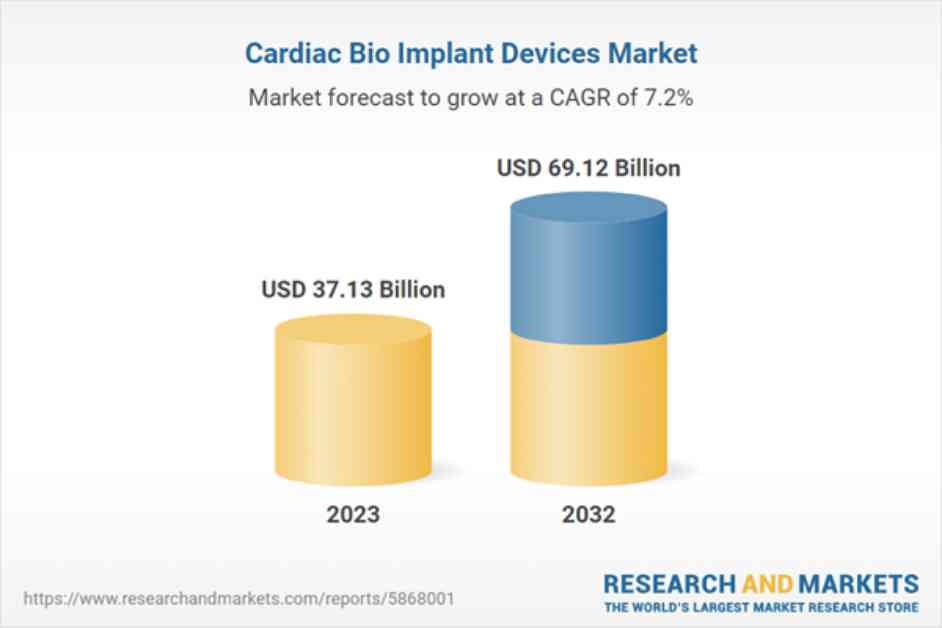The market for Cardiac Bio Implant Devices is expected to reach US$ 69.12 billion by 2032, showing a Compound Annual Growth Rate of 7.15% between 2024 and 2032. These devices play a crucial role in regulating and treating heart diseases such as heart failure, arrhythmias, and valvular heart diseases. They include pacemakers, defibrillators, bio-prosthetic heart valves, and ventricular assist devices (VADs).
Pacemakers help in controlling irregular heartbeats by using electrical signals, while defibrillators deliver electrical shocks to the heart in case of serious arrhythmias. Bio-prosthetic heart valves replace faulty or diseased natural valves, improving blood circulation. VADs support patients with severe heart failure by assisting in the pumping function of the heart, especially for those awaiting heart transplants. These devices significantly improve the quality of life for patients with cardiac issues by filling the gap in heart tissue, relieving symptoms, enhancing heart function, and reducing the risk of fatal events.
There are several driving forces behind the growth of the Cardiac Bio Implant Devices market. The global aging population is a significant factor, as elderly individuals are more prone to heart diseases that require these life-saving devices. Technological advancements in the medical field, such as leadless pacemakers, MRI-compatible devices, and minimally invasive surgeries, have improved the safety, performance, and comfort of these implants.
The rising incidence of cardiovascular diseases globally is also driving the demand for cardiac bio-implant devices. Unhealthy lifestyles, lack of exercise, obesity, and stress have led to an increase in heart disease cases, necessitating the use of implantable devices for treatment. Additionally, favorable reimbursement policies and insurance coverage for cardiac implant procedures are making these devices more accessible to a larger population.
In the Asia Pacific region, the market for Cardiac Bio Implant Devices is growing rapidly due to the increasing rate of cardiovascular diseases, rising population, and improved healthcare facilities. Countries like China, India, and Japan are key players in driving market growth through advancements in healthcare technology and increased awareness of heart diseases. The availability of these devices is further facilitated by government policies and insurance uptake.
Key players in the Cardiac Bio Implant Devices market include F. Hoffman-La Roche, Eurofins Scientific, Illumina, Inc., Natera Inc., Abbott Laboratories, Thermo Fisher Scientific, Quest Diagnostics, and Agilent Technologies. These companies play a crucial role in the development, production, and distribution of cardiac implant devices, contributing to the overall growth of the market.
Overall, the Cardiac Bio Implant Devices market is set to expand significantly in the coming years, driven by the aging population, technological advancements, rising incidence of cardiovascular diseases, and favorable reimbursement policies. These devices are essential in treating and managing various heart conditions, improving patient outcomes and quality of life.
